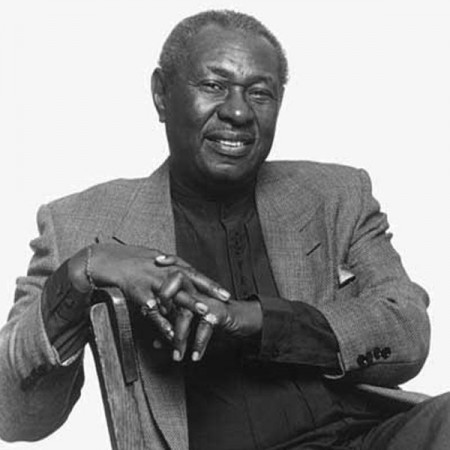
Freddy Cole (1931–2020)
(Photo: DownBeat Archive)“But John Lewis was my favorite,” he says. “I just loved his touch and his feel. I learned how to play John’s solos note for note, especially things like ‘Three Little Words,’ ‘Though Swell’ and those things with Lester Young around 1950. He was the man I most imitated because he was playing at a level that I could reach. It’s not how fast or how many notes you can play. And John had a clear voice. This is how young people learn. You literally copy someone. When you master what someone else can do, then you add to it, subtract from it, and play with it.”
Cole works with a trio of guitar, drums and bass, which gives him smooth support and well-crafted solo work. Sitting in the audience, the listener hears Jerry Byrd’s buoyant guitar work and the graceful dance of Curtis Boyd’s brushes. But as a performer, Cole hears something else that may surprise.
“Maybe most listeners don’t pay that much attention to bass,” he says. “But the bass is the most important instrument in the band. You can ask a drummer to lay out. But the bass player—damn!—you’re nowhere without him playing the right notes. I get all my cues from the bass player. People think a singer gets the changes from the piano player. But I hear through the piano to the bass. I can sing around a piano player, but not the bass.”
Cole is so emphatic, one might think for a moment that his main influences as a singer have been from bass players. But not so. Many singers have cast their sway upon him. “There were so many,” he says. “Billy Eckstine is still one of my favorites. I also like a guy named Bull Moose Jackson. He played saxophone, too. There were blues singers, too—Andrew Tibbs used to be around here in Chicago years ago. I feel blessed because I was ale to hear so many of these people. I listened to so many songs and singers on the radio. I’d pick up on lyrics that way.”
Those influences may or may not still linger in his performances. But they pale before the one influence he cannot escape because it’s in his DNA. To hear where Nat “King” Cole’s voice might be today had he lived past 47, one only has to hear Freddy. There is so much Nat in Freddy (as there was in Ike, too) that one can reasonably imagine that the phrases left undone by Nat may be playing out to one degree or another in Freddy. His sound is as uncanny as it is natural and uncontrived.
“You don’t want to play all you know in the first two choruses,” he laughs. “So I hit my stride at 70. Tony Bennett and I talked about this recently. It’s just a matter of keep on plugging. Thank God for college radio stations and NPR. That’s our major outlet all over the country now. That’s why FM radio has been so important. That and just going out and playing to audiences. Sheer persistence.” DB